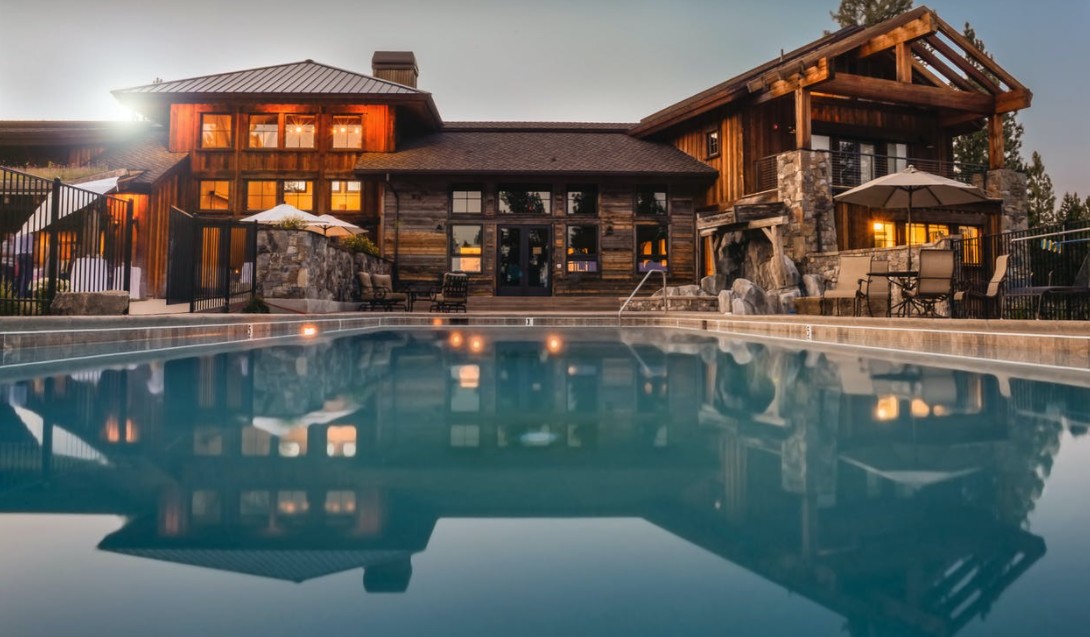Similar to anything else, swimming pools are available in all different designs, types, shapes and sizes and they are used for a variety of purposes. Lot size, budget, availability of materials and local codes will all play a role in what kind of pool you will ultimately decide to install or build on your property. Before making the decision, evaluate the type of pool that will work best for you and your family members. Perhaps a small spool will be ideal for you or maybe your dream is to have a big landscaped inground pool. We spoke to Kim Mortley from Dolphin Pools who gave us an outline on some of the different types of domestic swimming pools and their pros and cons:
Inground Pools
As suggested by the name, inground pools are swimming pools built into the ground. They are available in three different varieties: fiberglass, concrete and vinyl. Fiberglass and vinyl pools have the benefit of quick installation since the shell of the pool is pre-constructed. Concrete pools require the material to be poured into place; this process can take weeks to get done. However, choosing a concrete pool enables maximum customization. Essentially, the swimming pool can be conceived in any shape and the concrete can then be poured into that form.
Pros
- Lengthy lifespans of between 50 and 100 years
- With concrete pools there are unlimited design options
- Increase in property value
Cons
- Costly to install
- More maintenance and energy use required
- Long-term costs of vinyl and concrete pools as renovation and repairs will be required over time
Above Ground Pool
These are the non-permanent answer to having a swimming pool at home. They can be installed in most backyards in the matter of a few weeks, and it can be relocated, if necessary. These swimming pools are frequently found in more diverse climates, in which warm weather lasts for only a few months during the year. Having said that, above-ground swimming pools are less than fifty percent of the least expensive in ground pools. Additionally, they are easier to install and maintain. However, there are constraints that come with having one, like the value retention and size.
Pros
- Costs a lot less than inground pools
- Can be relocated, if necessary
- Lower energy use and maintenance
Cons
- Does not increase property value
- Shorter lifespans of between 10 and 25 years
- Customization options like décor, size and shape are limited
Infinity Pools
Infinity pools are viewed by many individuals as the zenith of swimming pool design. With innovative craftsmanship and architecture, infinity pools provide the impression of never-ending water, with some amount of otherworldly quality. There is an overflow of water over a ‘disappearing’ edge into a catch basin that recirculates the water into the swimming pool to provide its stunning appearance.
Pros
- Provide a unique vision and stunning views of the surroundings
- The water is constantly cleaned and filtered, making it easier to maintain than conventional pools
Cons
- It is an expensive undertaking
- Due to the exposed edge or edges, they are more dangerous compared to standard pools
Endless Pool
Endless pools provide a bit of a challenge for swimmers. This type of pool allows users to swim against a current that provides an experience that is comparable to doing laps of a pool that is much larger. The endless pool is also referred to as an exercise pool because it is remarkable for building strength and stamina.
Pros
- It does not take up a lot of space
- It is easy to install
- It is more economical to operate and easier to maintain than a conventional lap pool
Cons
- Installation is quite costly
- requires a much more preparation and installation than a regular pool
Freeform and Geometric Pools
These pools can be installed in any desired shape; therefore, a freeform pool is a remarkable option if you would like a curved pool or an irregular form to stand out among the rest. Done right, this pool can provide a natural, beautiful look, like a peaceful pond or a lovely lagoon.
Geometric pools are constructed in different shapes like squares, ovals and rectangles. The simple, clean form presents a stunning look. These categories of pools, especially rectangular pools, are perfect for individuals who would like to swim laps. Additionally, the infinity aspect of the “disappearing” edge can be easily incorporated into the design.
Pros
- Ideal for relaxing and lounging, as the pools can create seating spaces for multiple individuals
- Unique and artistic, creating a spectacular centerpiece for the landscape
- Can be designed to assimilate with the space surrounding them
Cons
- Not ideal for smaller yards
- Could become outdated since styles change over time
- Because of the impractical shape and contours, it is not ideal for swimming
Those are some of the different types of swimming pools from which you have to choose when it comes to choosing the best swimming pool for your residential property. There is a pool variety to suit small backyards, big backyards, budding swimmers and individuals who simply want to peacefully float around.

